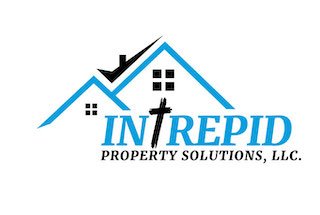You’ve likely heard about closing costs, but do you know everything that they include? Check out our closing cost “FAQ” to learn more about what closing costs are all about.
What Are Closing Costs Exactly in COLUMBIA?
Closing costs refer to all of the fees that must be paid at the closing table. Depending on where you live, the fees and costs can vary. But generally, closing costs include, but are not limited to:
- Notary fees
- Transfer Costs
- Transfer Taxes
- Appraisal Costs
- Inspection Fees
- Origination Fees
- Recordings Fees
- Title Insurance
- Underwriting Fees
- Bank Fees
- Courier Fees
- Wire Transfer Fees
- Liens against the home will need to be paid to clear the title
- Credit Report Fees
- Administrative Fees
- Attorney Fees, If Applicable
- The balance of your mortgage or loans against the home
- Possibly repairs or pest control if this has previously been agreed upon
- COMMISSIONS!
Closing costs encompass a variety of fees and expenses that both buyers and sellers must pay when finalizing a real estate transaction. These costs can vary widely depending on location and specific sale terms, but they generally include several key components. Notary fees are charged for authenticating the signing of documents. Transfer costs and transfer taxes cover the expenses and taxes associated with transferring property ownership. Appraisal costs are for determining the property’s market value, while inspection fees pay for professional assessments of the property’s condition.
Origination fees, recording fees, and underwriting fees are related to the processing and evaluation of the loan application, and title insurance protects against ownership disputes. Additional fees such as bank fees, courier fees, and wire transfer fees cover various logistical aspects of the transaction. Existing liens against the property must be cleared, and credit report fees are charged by lenders. Administrative fees cover document processing, and attorney fees may be required in some cases.
The balance of any outstanding mortgage or loans on the property must be paid off at closing. If repairs or pest control treatments were agreed upon, those costs are included as well. Real estate agent commissions, often a significant part of closing costs, are typically a percentage of the sale price and split between agents. Other potential costs include homeowner association fees, prorated property taxes, prepaid interest, home warranties, and escrow fees. Understanding these various fees can help ensure a smoother closing process.
Who’s Paying?
While the buyer will usually pick up a number of theses, it is important to note, that the seller typically pays 100% of the commission. This will be about 6%+ of the final sale price. Other than your possible mortgage balance, this is by far the biggest cost when it comes to costs at the closing table. Negotiating the other costs during the sale process is becoming increasingly popular. In an effort to lure in more buyers, sellers are more frequently picking up the tab when it comes to closing costs.
As a seller, you will also need to pay your share of the year’s property tax, up until the day of closing. Any HOA fees or other community costs should be prorated and paid at this time as well.
While the buyer usually handles several of the closing costs, it’s important to note that the seller typically pays 100% of the real estate commission. This commission is generally about 6% or more of the final sale price, making it the largest cost for the seller at the closing table, apart from any remaining mortgage balance. Given the significant amount, it’s essential for sellers to be prepared for this expense.
Negotiating other closing costs during the sale process has become increasingly common. To attract more buyers, sellers often offer to cover various closing costs. This strategy can make the property more appealing and facilitate a quicker sale.
In addition to commissions, sellers must also pay their share of the property taxes up until the closing date. This ensures that the buyer does not assume responsibility for taxes accrued during the seller’s period of ownership. Similarly, any homeowner association (HOA) fees or other community-related costs should be prorated and settled at the time of closing. These prorated expenses ensure a fair division of costs between the buyer and the seller, based on the actual period of ownership for each party. By covering these costs, sellers can help streamline the closing process and reduce potential conflicts or delays.
What Are Seller Subsidies?
This is an amount negotiated between the buyer and seller. It is the percentage the seller agrees to pay towards the closing costs. For example, you can offer to put 3k towards closing to help relieve some of the costs for your buyer. Overall, paying these subsidies are often a small price to pay to bring buyers to the table!
Can You Avoid These Costs?
Yes! By working with a direct buyer who will pick up all costs associated with the closing! A direct buyer will not charge you a commission, as they are not an agent. Many times, direct buyers will offer to pick up all costs, which will save you money and hassle at the closing table.
Are Repairs Included?
This is another one that is negotiated between the buyer and the seller. If the home is in need of some obvious repairs, the seller will often take care of these before putting their home on the market. However, if an inspection shows additional repairs are needed, a buyer may make his offer contingent on repairs being made. A buyer and seller can work this out before going to closing.

